Filter by
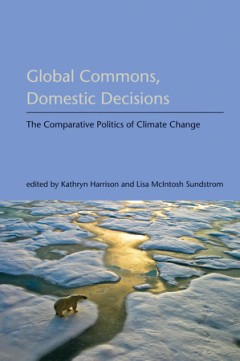
Global commons, Domestic decisions :the comparative politics of climate change
Climate change represents a “tragedy of the commons” on a global scale, requiring the cooperation of nations that do not necessarily put the Earth's well-being above their own national interests. And yet international efforts to address global warming have met with some success; the Kyoto Protocol, in which industrialized countries committed to reducing their collective emissions, took effe…
- Edition
- -
- ISBN/ISSN
- 9780262289481
- Collation
- 1 online resource (xi, 312 pages) :illustrations.
- Series Title
- -
- Call Number
- -

Strategic bargaining and cooperation in greenhouse gas mitigations : An Integ…
A fresh approach to the economics of climate change that bridges integrated assessment modeling and game theoretic modeling.
- Edition
- -
- ISBN/ISSN
- -
- Collation
- 1 online resource (x, 191 pages) :
- Series Title
- -
- Call Number
- -
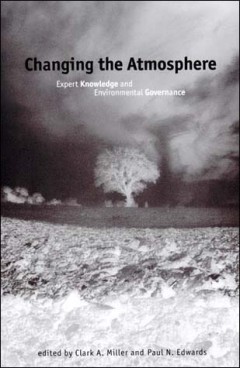
Changing the Atmosphere: Expert Knowledge and Environmental Governance
In recent years, Earth systems science has advanced rapidly, helping to transform climate change and other planetary risks into major political issues. Changing the Atmosphere strengthens our understanding of this important link between expert knowledge and environmental governance. In so doing, it illustrates how the emerging field of science and technology studies can inform our understanding…
- Edition
- -
- ISBN/ISSN
- 9780262279819
- Collation
- 1 online resource (xii, 385 pages) :illustrations.
- Series Title
- -
- Call Number
- -
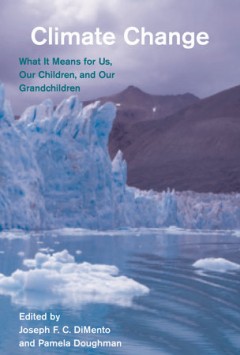
Climate Change :What It Means for Us, Our Children, and Our Grandchildren
"This revised and updated collection of essays on climate change incorporates the latest scientific research and policy initiatives on the subject. It describes recent major legislative actions, analyzes alternative regulatory tools (including new uses of taxes and markets), offers increased coverage of China and other developing nations, discusses the role of social media in communicating abou…
- Edition
- Second edition.
- ISBN/ISSN
- 9780262322300
- Collation
- 1 online resource (xiii, 343 pages) :illustrations.
- Series Title
- -
- Call Number
- -
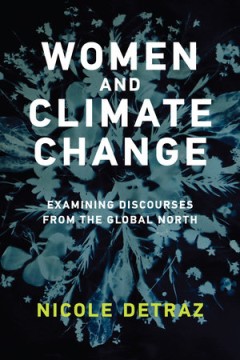
Women and climate change :examining discourses from the Global North
"This book investigates how women have been cast with regard to climate change science and policy-making, such as roles as victims, drivers of change, laborers, and saviors"--OCLC-licensed vendor bibliographic record.
- Edition
- -
- ISBN/ISSN
- 9780262372664
- Collation
- 1 online resource
- Series Title
- -
- Call Number
- -
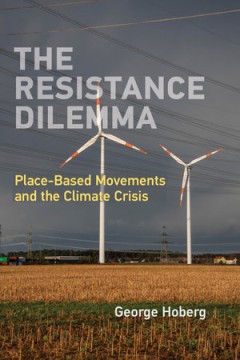
The resistance dilemma :place-based movements and the climate crisis
"The book focuses on a strategic choice by the North American wing of the global climate movement: to ally themselves with place-based interests, including Indigenous groups, to block new coal plants, coal port expansion, fracking, and more recently, oil sands pipelines. The strategy by climate activists to target fossil fuel infrastructure has been effective at movement building and driving po…
- Edition
- -
- ISBN/ISSN
- 9780262367158
- Collation
- 1 online resource.
- Series Title
- -
- Call Number
- -
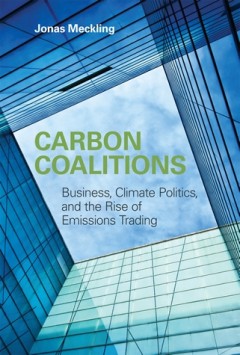
Carbon coalitions :business, climate politics, and the rise of emissions trading
An examination of how a transnational coalition of firms and NGOs influenced the emergence of emissions trading as a central component of global climate governance.Over the past decade, carbon trading has emerged as the industrialized world's primary policy response to global climate change despite considerable controversy. With carbon markets worth $144 billion in 2009, carbon trading represen…
- Edition
- -
- ISBN/ISSN
- 9780262298889
- Collation
- 1 online resource (x, 250 pages) :illustrations
- Series Title
- -
- Call Number
- -
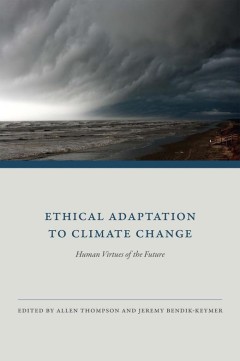
Ethical adaptation to climate change :human virtues of the future
Predictions about global climate change have produced both stark scenarios of environmental catastrophe and purportedly pragmatic ideas about adaptation. This book takes a different perspective exploring the idea that the challenge of adapting to global climate change is fundamentally an ethical one.OCLC-licensed vendor bibliographic record.
- Edition
- -
- ISBN/ISSN
- 9780262301541
- Collation
- 1 online resource
- Series Title
- -
- Call Number
- -
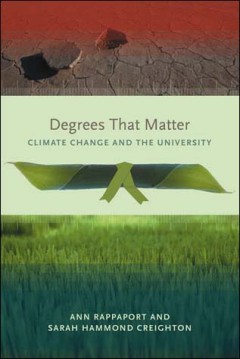
Degrees that matter: climate change and the university
Explains how members of college and university communities can take action on climate change: strategies, projects, and lessons in how to motivate complex organizations to make changes.OCLC-licensed vendor bibliographic record.
- Edition
- -
- ISBN/ISSN
- 9780262282086
- Collation
- 1 online resource (xviii, 372 pages) :illustrations.
- Series Title
- -
- Call Number
- -
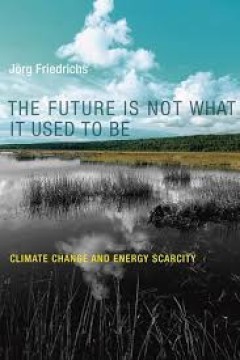
The future is not what it used to be : climate change and energy scarcity
"The future is not what it used to be because we can no longer rely on the comforting assumption that it will resemble the past. Past abundance of fuel, for example, does not imply unending abundance. Infinite growth on a finite planet is not possible. In this book, J?org Friedrichs argues that industrial society itself is transitory, and he examines the prospects for our civilization's coming …
- Edition
- -
- ISBN/ISSN
- 9780262316620
- Collation
- 1 online resource
- Series Title
- -
- Call Number
- -
 Computer Science, Information & General Works
Computer Science, Information & General Works  Philosophy & Psychology
Philosophy & Psychology  Religion
Religion  Social Sciences
Social Sciences  Language
Language  Pure Science
Pure Science  Applied Sciences
Applied Sciences  Art & Recreation
Art & Recreation  Literature
Literature  History & Geography
History & Geography